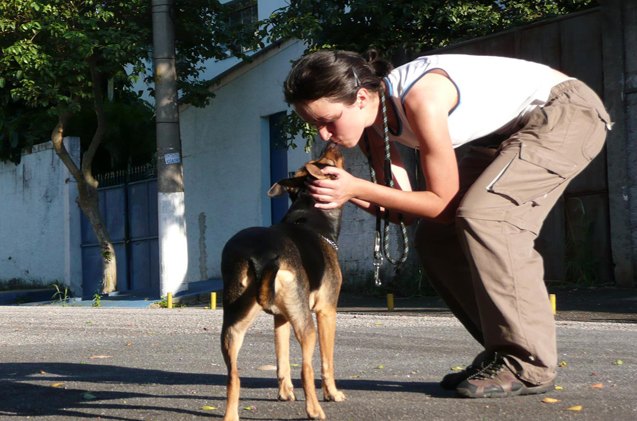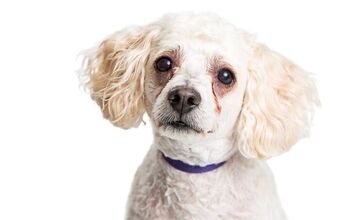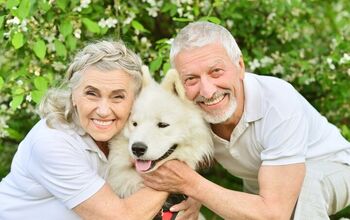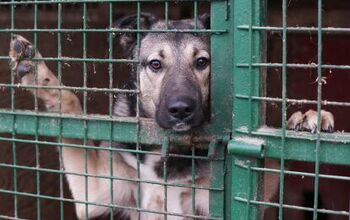Bayer Donation Helps Domestic Violence Victims and Pets Stay Together

It’s a sad, sad situation. Domestic violence sufferers want to leave…they want to escape their desperate situation, but they are worried about where they can go and take their pet with them.
Few shelters in this country will even consider pets, and that often makes abuse victims think twice about leaving their abuser to find shelter. The reality is, pets are our family, and if we can’t take them with us, often, we just won’t go.
International life and wellness company Bayer recognizes this dangerous problem, and has contributed $60,000 to three domestic violence shelters in the United States–shelters that also support the pets of abuse victims.
They’ve also launched an online campaign to bring awareness to the Pet and Women Safety (PAWS) Act, which is being reviewed by Congress. The campaign is called PAWS: Share the Story, and with it, Bayer hopes to shed light on the heartache that women who are abused face when they are made to choose between leaving their abuser or leaving their pet.
Related: Protection Dogs Offer New Kind of Support To Domestic Abuse Victims
In surveys, nearly half of women abused refuse to leave their abusive situations because they simply don’t know what would happen to their pets should they leave. Often, abusers will abuse pets as well, even killing them, or at minimum using the victim’s love for her pet to manipulate her. Because not enough domestic violence shelters capable of housing and caring for victims’ pets exist, women simply end up staying in the situation, which is dangerous, and even deadly to both her and her pet.
In 2012, the Rose Brooks Center in Kansas City, MO, opened its doors to pets, and became the first domestic violence shelter in its region to do so. Bayer donated $50,000 to help fund Paws Place, a shelter for pets located on the Rose Brooks grounds, and allowing abuse survivors to be together with their pets once they’ve left their abusive situation. Bayer has continued to fund pet care costs and facility maintenance for Paws Place, and has expanded their efforts to support abuse victims and their pets, by giving more money to two other shelters that will also support pets.
Bayer is giving $20,000 to Noah’s Animal House, which is a full service boarding facility located on the grounds of Nevada’s largest women and children’s shelter, The Shade Tree Shelter, as well as to the Urban Resource Institute (URI) in New York. The URI offers therapeutic counseling and educational services to survivors, and in 2013, they created the URI People and Animals Living Safely (URIPALS) program, which allows abused families and their pets to live in quarters together. This program is one of the few in the country that offers such services and bringing more awareness to the great need of supporting abuse victims by also supporting their pets will hopefully help create more programs and resources.
Related: Domestic Abuse Victims Can Find Shelter With Safe Place For Pets
Survivors look at programs that allow them to bring their pets as healing and life-changing. For many, they wouldn’t come to shelters and may even have lost their children, while their pets remained in abusive situations as well. Because dogs are often natural protectors, they get caught in the crossfire of abuse and need sheltering as well.
Saying that survivors should not ever have to choose between their own safety or that of their loved one (and pets are most definitely loved family members!), Bayer hopes that people will help support the PAWS Act to raise awareness. If you’d like to lend your support, there are significant things you can do to help!
Watch the PAWS: Share Your Story video and send an electronic letter to your local Congressional representatives. Sharing the links will help spread awareness and allow representatives to know just how important this is to protecting the innocent victims of domestic violence–human and companion animals alike.

More by Lori Ennis























